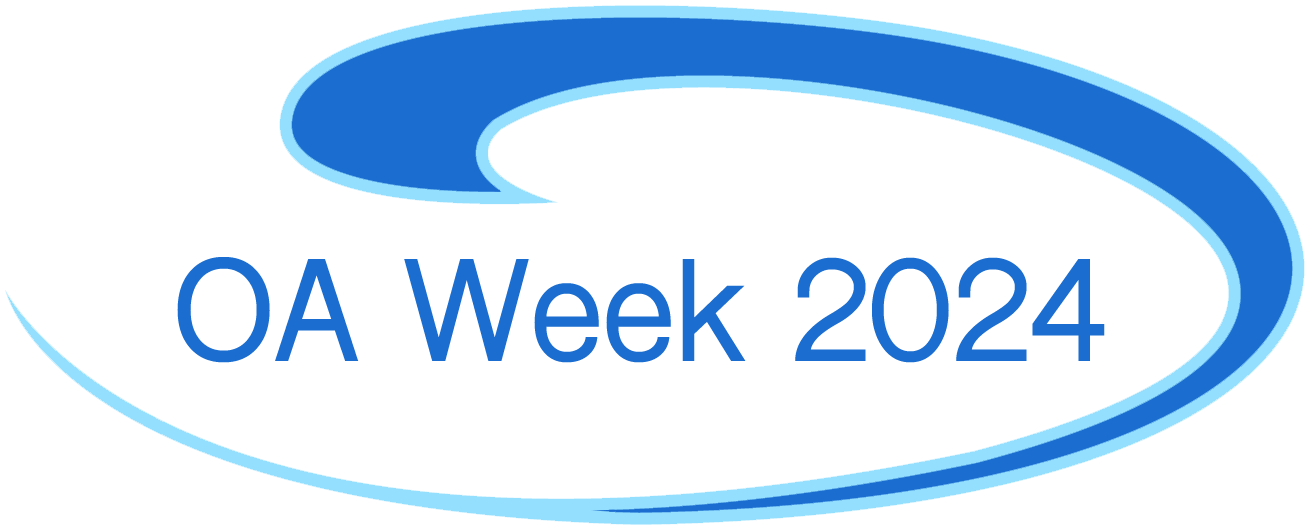
Ocean Acidification Week 2024
A virtual multi-day forum highlighting the ocean acidification knowledge we need to restore humanity's relationship with the ocean.
Monday 18 November - Friday 22 November 2024
Goals
OA Week debuted in 2020, and returned in 2021, when events and conferences were postponed due to COVID-19. Following the successful in-person Symposium on the Ocean in a High CO2 World in 2022, GOA-ON brought back OA Week 2023 to maintain momentum around OA research and provide a virtual platform for the ocean acidification community to exchange their latest findings. In 2024, OA Week will highlight the ocean acidification knowledge we need to restore humanity's relationship with the ocean.
This virtual symposium will bring together researchers across the world with sessions, plenary speakers, and engaging talks about ocean acidification research. If you have specific questions, please contact us at secretariat@goa-on.org.
Image Credit: Alex Tyrrell/Ocean Image Bank
Schedule
OA Week strives to feature early career ocean professionals (ECOPs) through its choice of organisers, speakers, and moderators. All ECOPs and members of the GOA-ON ICONEC Community for ECOPs are recognized by an asterisk (*) next to their name. If you are an ECOP and not a member yet, please consider joining the GOA-ON ICONEC Community.
18 November
SAROA Hub
Monday
18 November 2024 at 9:00 UTC View in various time zones
The South Asia Regional Hub on Ocean Acidification (SAROA) was established to cover the countries surrounded by regional seas and oceans across South Asia. Participating countries include India, Sri Lanka, Bangladesh, Myanmar, Malaysia, Maldives, Pakistan and Oman. SAROA was established to promote the practice of collection of geographically distributed data on ocean acidification encompassing South Asian waters including from vulnerable yet ecologically important coastal biotopes such as mangroves, estuaries, salt marshes, lagoons and coral reefs. SAROA intends to promote the development of national hubs for effective monitoring of OA and carry out capacity building activities geared towards early career researchers.
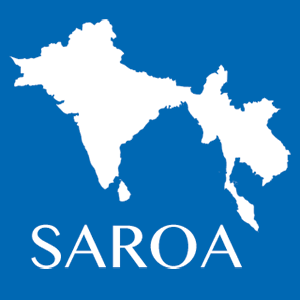
Speakers
Amit Kumar
Sathyabama Institute of Science and Technology, India
Marine macrophytes in the future acidified water
Kunal Chakraborty
Indian National Centre for Ocean Information Services, India
Understanding the present status of the Indian Ocean Acidification and its driving mechanisms
Nabanita Das
Shahjalal University of Science and Technology, Bangladesh
NANO-DOAP monitoring activities in Bangladesh
Updates from the ICONA Network
Monday
18 November 2024 at 12:00 UTC View in various time zones
The International CO2 Natural Analogues Network (ICONA) project aims at facilitating innovative research on the ecosystem-level effects of ocean acidification using natural analogues. This allows us to efficiently disseminate the findings that can underpin adaptive management strategies in order to mitigate the impacts of rapidly changing ocean conditions.
Speakers
Braden Tierney*
2 frontiers project, USA
High CO2 environments contain novel tools for microbial carbon capture
Nuria Teixidó
Stazione Zoologica Anton Dohrn, Italy
Linking species traits to functional change across marine habitats: field research at CO₂ vent systems in Ischia (Italy)
Fabian Goesser*
Ryukyus University, Japan
eDNA Metabarcoding Reveals High Community Heterogeneity in Palau's Nikko Bay
Riccardo Rodolfo-Metalpa
IRD Institut de Recherche pour le Développement, New Caledonia
OA Med Hub
Monday
18 November 2024 at 14:00 UTC View in various time zones
The Mediterranean Ocean Acidification Hub is a network that connects Mediterranean scientists who are working and are interested in ocean acidification in the Mediterranean Sea.
The Global Ocean Acidification Observing Network (GOA-ON) has encouraged grass-roots formation of regional hubs to foster communities of practice for the efficient collection of comparable and geographically distributed data to assess ocean acidification and its effects, and to support adaptation tools such as model forecasts.
The OA Mediterranean Hub includes scientists from fourteen countries in the region: Algeria, Croatia, Cyprus, Egypt, France, Greece, Italy, Lebanon, Malta, Morocco, Slovenia, Spain, and Türkiye.
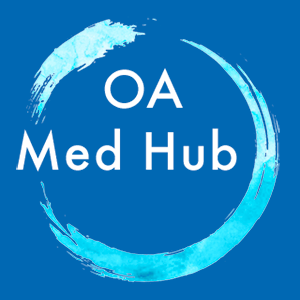
Speakers
Maria Cristina Gambi
National Institute of Oceanography and Applied Geophysics, OGS, Trieste, Italy
The CO2 hydrothermal vents as natural laboratories to study the effects of ocean acidification on the biota: an overview along the Italian coasts
Carlotta Dentico
Ca’ Foscari University of Venice and National Institute of Oceanography and Applied Geophysics - OGS, Italy
Exploring the CO2 system in the northern and southern Adriatic: current research and future perspectives
Iris Hendriks
Mediterranean Institute for Advanced Studies (IMEDEA), Spain
GreenHouse Gas dynamics on the southern coasts of the Mediterranean
Nina Bednarsek
Oregon State University, Cooperative Institute for Marine Ecosystem and Resources Studies, USA and Institute Jozef Stefan, Slovenia
Assessing the sensitivity of marine species to ocean alkalinity enhancement and mCDR prospects in the Mediterranean Sea
Valeria Ibello
National Research Council (CNR), Italy and Middle East Technical University (METU), Turkey
Inter-comparison Exercise of the Marine Carbonate System Parameters in the Mediterranean Sea: preliminary results
Policy and Governance
Monday
18 November 2024 at 16:00 UTC View in various time zones
Moderator(s)
Jessie Turner
International Alliance to Combat Ocean Acidification (OA Alliance) & UN Foundation
Speakers
Jessie Turner
International Alliance to Combat Ocean Acidification (OA Alliance) & UN Foundation
Introduction to ocean acidification policy and governance: International to Domestic
Inken Dressler
International Alliance to Combat Ocean Acidification (OA Alliance)
Recommendations for EU Member States to Integrate Ocean Acidification Across the Marine Strategy Framework Directive
Punyasloke Bhadury
Indian Institute of Science Education and Research Kolkata, India
Developing Effective OA Research Based Policy Framework in Global South – Importance of Local and Regional Perspectives
Micah Horwith
Washington State Department of Ecology
How to Implement OA Policy and Action Plans: Reflections from Washington State and Department of Ecology
19 November
Southern Ocean Hub
Tuesday
19 November 2024 at 3:40 UTC View in various time zones
GOA-ON/SOOS Ocean Acidification Southern Ocean Regional Hub.
The Southern Ocean ranks amongst the most vulnerable of all oceanographic regions to acidification. While significant effort in the collection of data and observations has been made at a national level across the globe, a comprehensive and integrated circumpolar understanding of the changes occurring, and responses of organisms to these changes, is lacking. This workshop will launch the newly formed Southern Ocean collaborative hub on ocean acidification (OA). This hub is uniquely positioned at the nexus of SOOS and GOA-ON, providing a novel platform for the coordination of transdisciplinary research activities, tapping into the diverse expertise across the Southern Ocean OA research community. In this way we hope to develop and deliver research on OA, its drivers, and biological responses, from local to regional scales. The hub will also be a conduit for communicating research outcomes and provide a mechanism to identify and prioritise emerging observational and research needs. As an inaugural activity for the hub, this round table session presents an opportunity to connect, table our thoughts and ideas, and consolidate key research areas and specific aims we, as an international community, could start to target.
This session is part of the Australian Antarctic Research Conference, taking place in Hobart, Tasmania, from 19-22 November 2024.

Speakers
Katherina Petrou
University of Technology Sydney
GOA-ON/SOOS: Ocean Acidification Southern Ocean Regional Hub (OASO)
Cara Nissen
University of Colorado Boulder, USA
Bronte Tilbrook
CSIRO Oceans and Atmosphere and Australian Antarctic Program
Co-developing and encouraging community involvement in ocean acidification research and monitoring
Tuesday
19 November 2024 at 5:00 UTC View in various time zones
Historically, sampling and training requirements and cost-prohibitive equipment have been barriers to the wider involvement of communities in ocean acidification (OA) monitoring. However, new technologies now exist to enhance these possibilities, for example, use of smartphones as environmental analysers (e.g., mobile app vSEA-pH) and the low-cost GOA-ON-in-a-box kits for collecting weather-quality ocean acidification measurements.
There are many benefits of co-developing OA research and monitoring strategies with members of the public. Involvement of local communities can help publicise and educate around the issue of OA, relating impacts to their region. This can also be a conduit for wider education around other related environmental concerns.
Co-development of research and data collection with the public, stakeholders, and indigenous groups provides connection of participants to the science and empowerment and ownership of implementation and outcomes. Co-development can also provide cultural and local relevance to research or data collection programs improving impact and effectiveness.
Moderator(s)
Rachel Hale
National Institute of Water and Atmospheric Research, Aotearoa New Zealand
Speakers
Jian Ma
Xiamen University, China
Towards citizen science-based ocean acidification observations using smartphone devices
Punyasloke Bhadury
Indian Institute of Science Education and Research Kolkata
The role of coastal communities in shaping ocean acidification monitoring in South Asia
Hadija Mussa Udodo
Sustainable Ocean Alliance Tanzania, Environmental scientist/ Young Ocean Leader
Community led restoration of Seagrasses and Mangroves in Bagamoyo, Tanzania
Azaria Pickering
Pacific Community (SPC), Pacific Islands Ocean Acidification Centre
Monitoring Ocean Acidification in the Pacific: Experiences with GOA-ON in a Box
Restorative Aquaculture: OA Mitigation to Maintain Ecosystem Services
Tuesday
19 November 2024 at 13:00 UTC View in various time zones
Moderator(s)
Ana Veronica Garcia Condo
Oceanogami and Universidad de Concepción
Speakers
Eliza Ravagnan
Norwegian Research Centre AS (NORCE)
Integrated multi-trophic aquaculture: new value chains in the Atlantic Ocean
Marina Martin Sandoval
Leitat Technological Center
Pathogen-microbiome early warnings aquaculture
Sebastian Gatica Montero
HuiroRegenerativo
Sally Salaah Eldin Elshalqamy
National Institute of Oceanography and Fisheries, Egypt
Role of seaweed diversity and sustainable marine vegetation development in aquaculture restoration
Ana Veronica Garcia Condo
Oceanogami and Universidad de Concepción
Ecosystemic services and integrated multi-trophic aquaculture (IMTA) productions systems
Communicating ocean acidification
Tuesday
19 November 2024 at 14:00 UTC View in various time zones
Are you involved in OA science and looking to strengthen your communication on ocean acidification? Join OARS, NOAA OAP and the OA Alliance for this interactive session which will provide you with tools, strategies, and creative approaches to make your message resonate with diverse audiences—including policymakers, educators, and the public.
Moderator(s)
Amy Kenworty
OARS Project Coordinator, Plymouth Marine Laboratories, and ProBleu Programme
Speakers
Liz Perotti
NOAA Ocean Acidification Program
Jessie Turner
OA Alliance
Stéphanie Heckman
Graphic Recorder and Visual Facilitator; Belfast, Northern Ireland
Amy Kenworthy
OARS and ProBleu
Juliana Corrales
OA Alliance
Building Capacity in Physical Chemistry for Oceanography: How To Address the Emerging Skills Gaps
Tuesday
19 November 2024 at 16:00 UTC View in various time zones
This community discussion will introduce the results of an online survey and consultation conducted earlier this year with the ocean science community to assess what we perceive as emerging skills gaps in basic physical chemistry training and expertise in several areas of chemical oceanography, especially (but not exclusively) including the ocean carbonate system. The purpose of this discussion will be to decide next steps for a community activity (most likely a Workshop) including its focus, content, participants, and outcomes to help address the emerging skills gap identified in the survey.
We invite you to read the Survey Report describing the skills gap survey results and associated community feedback on recommended paths forward. Find more details on the marchemspec website.
Moderator(s)
Heather Benway
Woods Hole Oceanographic Institution, USA
Simon Clegg
University of East Anglia, UK
Speakers
Mallory Ringham
Lead Oceanographer, Head of MRV, Ebb Carbon, USA
Clifton Buck
Associate Professor and Graduate Coordinator, Skidaway Institute, University of Georgia, USA
Erica Ombres
Program Manager, NOAA Ocean Acidification Program, USA
Ryan Woosley
Principal Research Scientist, Center for Sustainability Science and Strategy, Massachusetts Institute of Technology, USA
Katelyn Schockman
NOAA Atlantic Oceanographic & Meteorological Laboratory, USA
Emily Bockmon
California Polytechnic State University, USA
Jess Adkins
Caltech/Co-founder and CEO of Calcarea
Arctic Hub
Tuesday
19 November 2024 at 18:00 UTC View in various time zones
The Arctic Ocean Acidification Hub (Arctic Hub) is a network for different disciplines of ocean acidification (OA), including observations, experiments and modelling within the Arctic region.
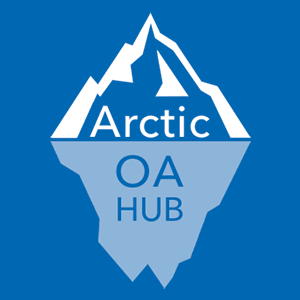
Speakers
Agneta Fransson and Melissa Chierici
Norwegian Polar Institute and Havforskingsinstituttet (HI) / Institute for Marine Research, Norway
Introduction to the Arctic Hub
Kate Ortenzi
Dalhousie University, Canada
On projects - Indigenous and Arctic communities
Claudine Hauri
University of Alaska Fairbanks, US
Advancing equity in Arctic Ocean modeling: a holistic approach bridging indigenous knowledge and western science
Elise Droste*
Alfred Wegener Institute, Germany & University of East Anglia, UK
Arctic ocean chemistry
Lorenz Meire*
Greenland Climate Research Centre
Effects of OA and meltwater on Arctic biological production
Maile Branson
Chugach Regional Resource Commission
Community sampling for ocean acidification
20 November
PI-TOA Hub
Wednesday
20 November 2024 at 0:00 UTC View in various time zones
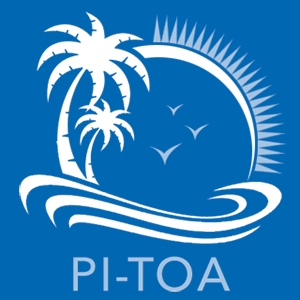
Moderator(s)
Luia Taise
National University of Samoa
Speakers
Sebastian van de Velde
University of Otago, New Zealand
From ocean acidification to ocean alkalinity enhancement
Melissa Melendez
University of Hawai’i at Mānoa, USA
Diurnal CO2 dynamics in the Kaneohe Bay reef environment
Maisy Lus
Fish Reef Project, Papua New Guinea
Establishing baseline ocean acidification monitoring in Papua New Guinea: Tools, trials, and lessons learned
Azaria Pickering
The Pacific Islands Ocean Acidification Centre (PIOAC), Fiji
Ocean acidification in the Pacific: A regional perspective
Kaitlyn Lowder
The Ocean Foundation, USA
Accessible practices and guidance for monitoring ocean acidification
Marine Chemical Speciation
Wednesday
20 November 2024 at 15:00 UTC View in various time zones
This presentation and community discussion will introduce the MarChemSpec software package (see https://marchemspec.org), which can be used to calculate chemical speciation in natural waters containing the ions present in seawater. MarChemSpec is not restricted to standard seawater composition, unlike CO2SYS and similar software. Thus carbonate equilibria, for example, can be calculated for natural waters with any major ion composition, and the same is true for the complexation of the trace metals that are the focus of GEOTRACES. The model results include estimated uncertainties.
Applications of MarChemSpec include not just the calculations of equilibrium concentrations, activities, and values of the four CO2 seawater variables (pHT, total alkalinity, total dissolved inorganic carbon, and pCO2) but also saturation with respect to solid phases.
Speakers
David Turner
University of Gothenburg, Sweden
Simon Clegg
University of Anglia, UK
Mathis Hain
University of California Santa Cruz, USA
New Zealand Ocean Acidification Community
Wednesday
20 November 2024 at 20:00 UTC View in various time zones
NZOAC is celebrating OA Week 2024 by hosting a virtual conference, giving members the opportunity to share their research. This is the first set of presentations for this one day event, which is co-sponsored by GOA-ON OA Week 2024! Please join to hear more about research currently being conducted in New Zealand and feel free to join the one-day NZOAC virtual conference later in the day for more presentations.
Join the Zoom Meeting Here

Speakers
Sebastian van de Velde
University of Otago
Future of the NIWA/Otago carbonate chemistry facilities and NZOA-ON
John Zeldis
National Institute of Water and Atmospheric Research (NIWA)
Carbonate and the NIWA Cross-Shelf Exchange (C-SEX) Database
Christina McGraw
University of Otago
Rapid measurement of cellular protein and lipid for global climate change studies
21 November
OA Africa
Thursday
21 November 2024 at 11:00 UTC View in various time zones
Ocean Acidification Africa is a pan-African network specifically convened to coordinate and promote ocean acidification (OA) awareness and research in Africa. Research activities on ocean acidification and related stressors on the African continent are developing rapidly in response to a clear need for action to minimize and address the impacts posed by changing climatic and system wide changes. OA-Africa is composed of scientists interested in conducting research on ocean acidification monitoring and observation in Africa and they are part of the wider Global Ocean Acidification Observing Network.
This session will also introduce the new Gulf of Guinea Ocean Acidification Network (GG-OAN)!
Speakers and presentation topics to be announced soon!
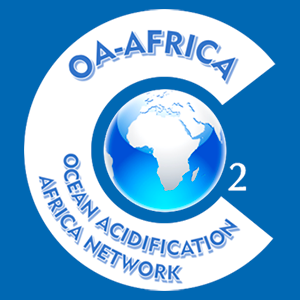
Speakers
Lina Hansson
IAEA Ocean Acidification International Coordination Centre (OA-ICC)
Capacity building in Africa
Chaimaa Jamal
Morocco
Preliminary study of Carbonate chemistry and ocean acidification along the Moroccan Atlantic Coast
Anthony Akpan
Nigeria
Mainstreaming Ocean Acidification into National Policies: A Key Necessity For Integrating OA Science Recommendations Across National Policy And Management Schemes In Nigeria
Sheck Sherif
Liberia
Assessing the gender-based perception of climate change and ocean acidification of coastal artisanal fishing communities in Liberia
Veronica Wanjer
Kenya
Monitoring seawater carbonate chemistry in critical habitats along the Kenyan coast
Technology gaps and new tools for OA research
Thursday
21 November 2024 at 13:00 UTC View in various time zones
In this community discussion session, researchers working on the development of new techniques and technology for the observation and measurement of ocean acidification introduce their tools. Join to learn more about these developments and take the opportunity to ask your questions.
Speakers
Murray Roberts & Gavin Sim
School of Geosciences, University of Edinburgh, UK
Automating TA/DIC Measurements for High Frequency Sampling
Dr. Simon Whelan & Simon Ussher
University of Plymouth, UK
The development of a low cost pH sensor for a large network for monitoring changes in ocean pH
Reggie Spaulding
Sunburst Sensors, USA
MOBI-pH and MOBI-alk: mobile instruments for measurement of pH and total alkalinity
Anthony J. Lucio
National Oceanography Centre, UK
Accurate and rapid sensing of seawater pH using coupled lab-on-chip and optode technology
Caribbean Hub
Thursday
21 November 2024 at 15:00 UTC View in various time zones
Speakers and presentation topics to be announced soon!
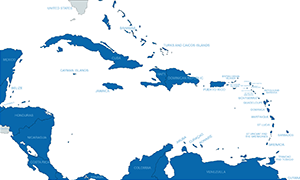
Speakers
Clayton Vondriska
University of Miami and the University of the Virgin Islands, St. Thomas, USA
Effects of Ocean Acidification on a Common Ectoparasite of Coral Reef Fish
Claire Williams
Jackson School of Geosciences, The University of Texas at Austin, USA
Environmental Monitoring to Support Coral Reef Management in the East Portland Special Fishery Conservation Area, Jamaica
Julio Morell
Director of the Caribbean Coastal Ocean Observing System, NOAA-IOOS, Lajas, Puerto Rico, USA
Biogeochemical Impact of Sargassum Inundation
22 November
LAOCA
Friday
22 November 2024 at 15:00 UTC View in various time zones
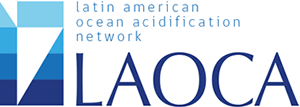
Speakers
José Gilberto Cardoso Mohedano
Universidad Nacional Autónoma de Mexico, Estación El Carmen. Cd. Del Carmen, Campeche, Mexico
Exploring the Carbon Mysteries of the Largest Karstic Lagoon in Southern Gulf Mexico
Asbel Itahi de la Cruz Ruiz
Instituto Politécnico Nacional, CIDIIR Sinaloa
Factores que determinan la variabilidad del flujo de CO2 océano - atmósfera en 5 zonas costeras del golfo de California
Natalie del Carmen Semanche Bravo
Facultad de Ciencias Biológicas, Universidad Nacional Pedro Ruíz Gallo, Perú
Cecilia Chapa Balcorta
Instituto de Recursos, Licenciatura en Oceanología, Universidad del Mar. Puerto Ángel, Oaxaca, México
Dissolved inorganic carbon distribution at the oxygen minimum zone of the Gulf of Tehuantepec
North American Hub
Friday
22 November 2024 at 17:00 UTC View in various time zones
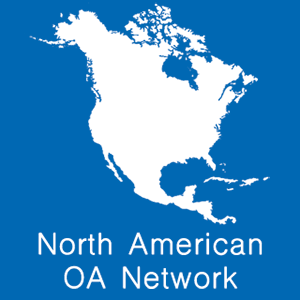
Moderator(s)
Jose Martin Hernandez Ayon
University of Baja California Instituto de Investigaciones Oceanológicas of the Autonomous
Anna Hughes
Oregon State University Department of Chemical Oceanography
Speakers
Richard Feely
National Oceanic and Atmospheric Administration (NOAA) Pacific Marine Environmental Laboratory (PMEL)
Introduction to the North American Hub and Background for Today’s Discussion
Jonathan Sharp
National Oceanic and Atmospheric Administration (NOAA) Pacific Marine Environmental Laboratory (PMEL)
Ocean Acidification Indicators in US Coastal Waters
Lauric Feugere
University of Hull, Department of Biological Sciences
Combined Effects of Ocean Acidification and Ocean Warming on Different Shrimp Populations using Lipidomics and Fisheries Management Implications
Laura Liliana López Galindo
University of Baja California Instituto de Investigaciones Oceanológicas of the Autonomous
OA Research on Marine Mollusks: Biotechnology, Molecular Biology, and Marine Biology
ICONEC
Friday
22 November 2024 at 19:00 UTC View in various time zones
The ICONEC steering committee will lead a community discussion.
Moderator(s)
Austin Pugh
Northeastern Regional Association of Coastal Ocean Observing Systems (NERACOOS)
Speakers
Adekunbi Falilu
Nigerian Institute for Oceanography and Marine Research
Amy Markel
University of Hawai’i at Manoa
Patrick Duke
CarbonRun
Amanda Kirkland
NOAA Office of National Marine Sanctuaries
Elise Keister
NOAA Ocean Acidification Program/ GOA-ON Secretariat
View Previous OA Weeks on YouTube
Coordinators
The GOA-ON Secretariat is tremendously grateful for the support with the organisation of OA Week 2024. Specifically, Rachel Hale, Catherine Brown, and Loraine Martell-Bonet are OA Week Coordinators, assisting with session and speaker organisation. ICONEC Steering Committee member Natalie Bravo Senmache is the OA Week Graphic Designer, creating the visuals for OA Week.
Meet our amazing OA Week Coordinators:
Rachel Hale
Rachel Hale is a Benthic Ecologist researching the biodiversity and functional ecology of seafloor environments at the National Institute of Water and Atmospheric Research (NIWA), in Nelson, Aotearoa New Zealand. She seeks to understand how these communities respond to stressors, including ocean acidification. Her research spans from the intertidal to the deep sea to determine how these key ecosystems support global processes and human well-being.
Catherine Brown
Catherine Brown is a passionate marine policy specialist who recently graduated with an MSc in Marine Systems and Policies from the University of Edinburgh. Still based in Edinburgh, she focuses on international ocean governance, marine spatial planning, and science communication, with a particular interest in areas beyond national jurisdictions. Her recent projects include a Master’s dissertation offering recommendations for marine spatial planning in the West Antarctic Peninsula, and the development of four research-driven policy briefs to guide international implementation of the 2023 UN Agreement for the conservation and sustainable use of marine biological diversity (BBNJ Agreement).
Loraine Martell-Bonet
Loraine Martell-Bonet holds a Ph.D. in Chemical Oceanography from the University of South Florida, where her dissertation focused on the marine carbon system and assessing ocean acidification literacy within the Deaf community, emphasising her dedication to inclusivity in marine science. She has contributed significantly to OA research, participating in key projects, such as the Gulf of Mexico Ecosystems and Carbon Cycle (GOMECC-4) and Carbonate Dissolution Kinetics (CDisK-IV) cruises. Beyond her academic achievements, Loraine is committed to community service through active participation in the Coastal and Ocean STEM Equity Alliance (COSEA), promoting equity, diversity, and inclusion in the field. She is currently a research associate with The Caribbean Coastal Ocean Observing System (CARICOOS), contributing to the OA monitoring program in partnership with the National Oceanic and Atmospheric Administration (NOAA).
Natalie del Carmen Bravo Senmache
Natalie del Carmen Bravo Senmache graduated in Biology, with a focus in Fisheries Biology, based at the Pedro Ruiz Gallo National University in Lambayeque, Peru. Her work has focused on the carbonate system in coastal areas and the impacts of acidification, and other stressors, on calcifying organisms. Additionally, she has used biology and ecology to inform the management of marine resources and search for adaptation and mitigation alternatives in response to climate change. In parallel to her academic work, she also dedicated herself to supporting initiatives to strengthen networks and capacities through her participation in International Carbon Ocean Network for Early Career (ICONEC), Research Network of Marine-Coastal Stressors in Latin America and the Caribbean (REMARCO), and the Peruvian Oceanography network and most recently as the representative of Peru/Ecuador and Early Career in Latin American Ocean Acidification Network (LAOCA) Executive Council.
